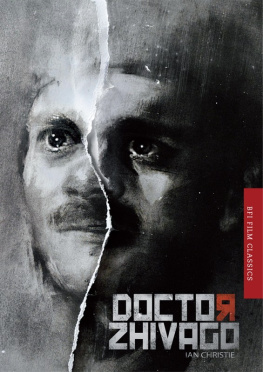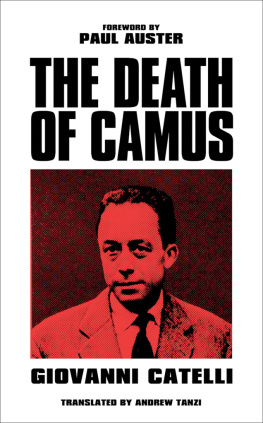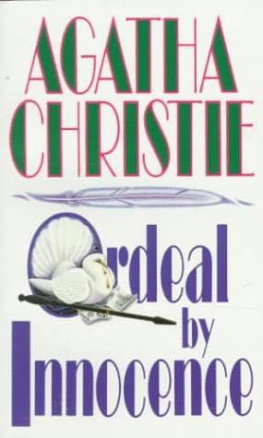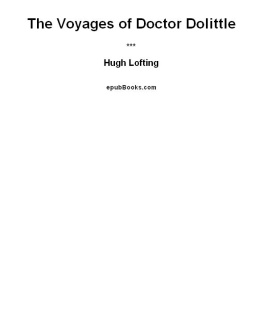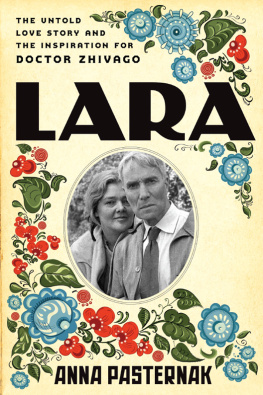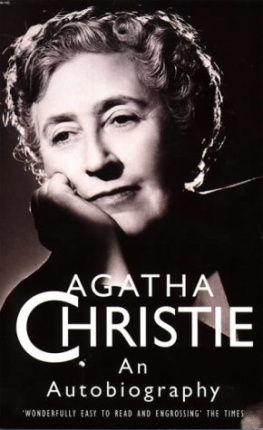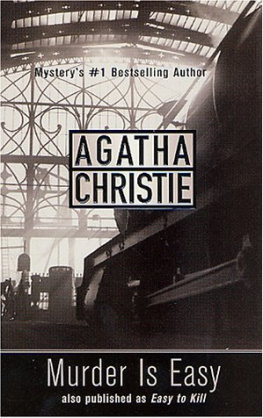BFI Film Classics
The BFI Film Classics is a series of books that introduces, interprets and celebrates landmarks of world cinema. Each volume offers an argument for the films classic status, together with discussion of its production and reception history, its place within a genre or national cinema, an account of its technical and aesthetic importance, and in many cases, the authors personal response to the film.
For a full list of titles available in the series, please visit our website: www.palgrave.com/bfi
Magnificently concentrated examples of flowing freeform critical poetry. Uncut
A formidable body of work collectively generating some fascinating insights into the evolution of cinema.
Times Higher Education Supplement
The series is a landmark in film criticism.
Quarterly Review of Film and Video
Possibly the most bountiful book series in the history of film criticism. Jonathan Rosenbaum, Film Comment
Editorial Advisory Board
Geoff Andrew, British Film Institute | Laura Mulvey, Birkbeck College, University of London |
Edward Buscombe |
William Germano, The Cooper Union for the Advancement of Science and Art | Alastair Phillips, University of Warwick |
Dana Polan, New York University |
Lalitha Gopalan, University of Texas at Austin | B. Ruby Rich, University of California, Santa Cruz |
Lee Grieveson, University College London | Amy Villarejo, Cornell University |
Nick James, Editor, Sight & Sound |
Doctor Zhivago
Ian Christie

Ian Christie 2015
All rights reserved. No reproduction, copy or transmission of this publication may be made without written permission. No portion of this publication may be reproduced, copied or transmitted save with written permission or in accordance with the provisions of the Copyright, Designs and Patents Act 1988, or under the terms of any licence permitting limited copying issued by the Copyright Licensing Agency, Saffron House, 610 Kirby Street, London EC1N 8TS. Any person who does any unauthorised act in relation to this publication may be liable to criminal prosecution and civil claims for damages.
The author has asserted his right to be identified as the author of this work in accordance with the Copyright, Designs and Patents Act 1988.
First published in 2015 by
PALGRAVE
on behalf of the
BRITISH FILM INSTITUTE
21 Stephen Street, London W1T 1LN
www.bfi.org.uk
Theres more to discover about film and television through the BFI. Our world-renowned archive, cinemas, festivals, films, publications and learning resources are here to inspire you.
Palgrave in the UK is an imprint of Macmillan Publishers Limited, registered in England, company number 785998, of 4 Crinan Street, London N1 9XW. Palgrave Macmillan in the US is a division of St Martins Press LLC, 175 Fifth Avenue, New York, NY 10010. Palgrave is a global imprint of the above companies and is represented throughout the world. Palgrave and Macmillan are registered trademarks in the United States, the United Kingdom, Europe and other countries.
Front cover design: Micha Janowski
Series text design: ketchup/SE14
Images from Doctor Zhivago (David Lean, 1965), Metro-Goldwyn-Mayer; Young Cassidy (Jack Cardiff, 1965), Sextant Films; King and Country (Joseph Losey, 1964), B.H.E. Productions; Great Expectations (David Lean, 1946), Independent Producers; War and Peace (King Vidor, 1956),
Ponti-De Laurentiis; Doctor Zhivago (Giacomo Campiotti, 2002), Granada/E-Vision/WGBH; Star Wars: Episode II Attack of the Clones (George Lucas, 2002), Lucasfilm Ltd/Twentieth Century-Fox Film Corporation; Cathy Come Home (Ken Loach, 1966), BBC.
Set by Cambrian Typesetters, Camberley, Surrey
Printed in China
This book is printed on paper suitable for recycling and made from fully managed and sustained forest sources. Logging, pulping and manufacturing processes are expected to conform to the environmental regulations of the country of origin.
British Library Cataloguing-in-Publication Data
A catalogue record for this book is available from the British Library
A catalog record for this book is available from the Library of Congress
ISBN 9781844579211
Contents
Acknowledgments
This small book about a large film could not have been written without frequent reference to Kevin Brownlows magnificent 1996 biography of David Lean, itself based on conversations with the director and with many of his associates, and on major collections of documents. It also draws upon my own research for The Art of Film: John Box and Production Design (2008), which was informed by extended conversations with its subject and a number of his colleagues, including Terence Marsh and Phyllis Dalton, both key to the making of Zhivago. The first, invaluable reader of my text was Patsy Nightingale, to whom all thanks for helping it and much else happen.
Particular thanks are due to Phyllis Dalton, Wim Jansen of Movie Ink Gallery, Amsterdam, and Andre Kozovo for permission to reproduce key photographs. Also to Sophia Contento and Philippa Hudson for making possible its rapid production with scrupulous attention to detail.
How Zhivago Happened
Several years ago, I was at a small garden party in North London, and gradually realised that I was sitting close to Julie Christie. What should I do? Pretend not to be aware of who she was, or launch into some appropriate conversation? Not wanting to embarrass the actress, I eventually said something about being fascinated by the colour design of Doctor Zhivago, after recently writing a book about its designer, John Box. Especially the blaze of yellow that lights up the library where Christies character, Lara, is working when Zhivago rediscovers her after they have been separated by the Revolution. Immediately, Christies face lit up at what seemed to be still a vivid memory, and I felt I had touched a chord that meant something to both of us, far beyond talk about the making of the film or its more obvious reputation. And indeed, that moment was a key image for the films writer, Robert Bolt who imagined an ocean of daffodils for the scene that leads up to this fateful meeting soon after he first agreed to write the script.
I had come back to the film because of my association with the production designer John Box. Having committed to writing a book about his vision of the designers role, I had to take on board the full range of films he had worked on, of which Zhivago was probably the best known, after Lawrence of Arabia (1962). And as with Lawrence, I was conscious of having to overcome the prejudices of youth. During the 1960s and 70s, when film studies was still taking shape as a field of study, polemic played a vital role in defining the new subject. It was as important to declare what you were against in cinema as what you were championing. And David Leans epics Lawrence and Zhivago came high among the targets of cinephile contempt. During the years I spent arguing for Michael Powell and Emeric Pressburgers then little-known work, Lean also stood as a baleful comparison, with his seemingly overblown triumph, at a time when neither of his former mentors could get their own projects off the ground.
By the time I came to know John Box, I had developed a high regard for Leans films of the 1940s and 50s, especially his skilfully modernised, and very English, family melodramas, from
Next page
